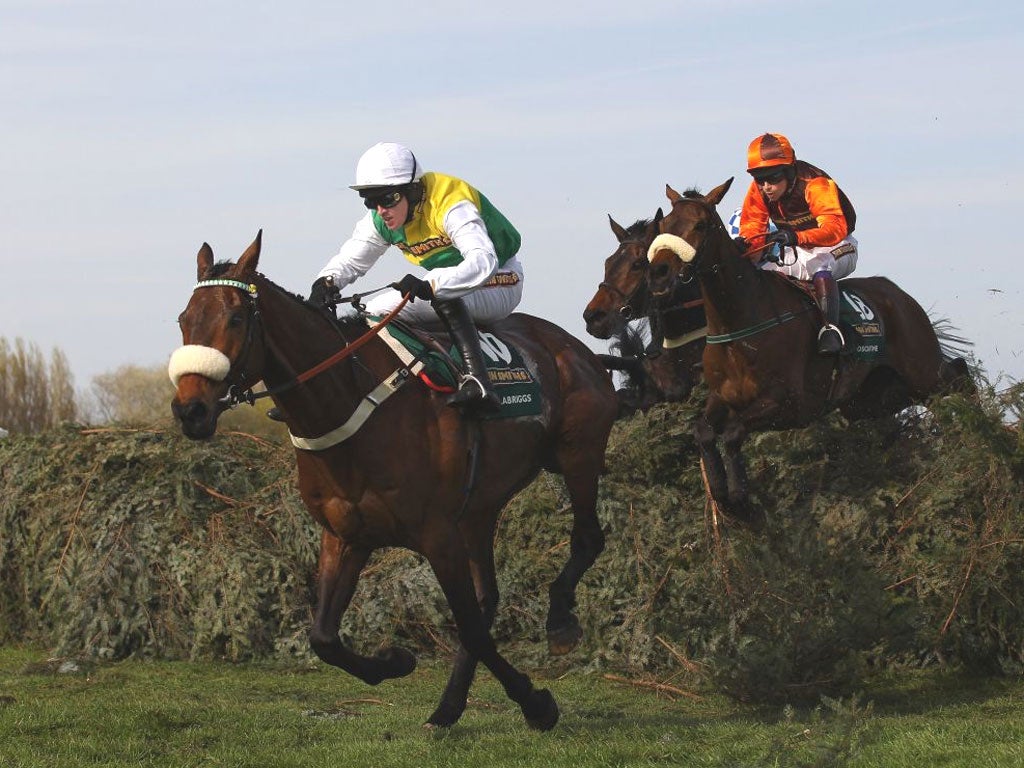BBC hoists white flag over National
Channel 4's four-year £15m deal for marquee races is apt reward for its passionate approach

A week that measured its coverage against the most demanding and prestigious event in its current schedule ended yesterday with confirmation that Channel 4 has secured exclusive domestic rights to British racing from next year. With the BBC finally cutting its frayed moorings to the sport, the John Smith's Grand National, Investec Derby and Royal Ascot will now join the Cheltenham Festival on commercial television.
While the new monopoly has set a significantly higher value on those showcase events, the feeling is that the BBC was very much there for the taking. It has palpably lost interest over recent years, ultimately trading on a reputation for lending gravitas to major sporting events – despite a contrasting tenor in the way it nowadays covers the Turf – in maintaining just 13 days of racing in 2011.
Over the last three years, the BBC has valued its small-but-select racing portfolio at around £2.5m per annum. It is said that the four-year Channel 4 contract may be worth £15m. By broadcasting around 80 meetings a year, in principle Channel 4 has long evinced far deeper commitment to the sport, though coverage of these less glamorous fixtures has been contingent on both a seven-figure annual subsidy plus sponsorship revenue.
One way or another, however, the very process of sustaining that workload has consolidated a sense that those producing and presenting its coverage have a genuine and infectious passion for their task. For all the inevitable differences in the taste of individual viewers – which, taken together, would certainly warrant the recruitment of Clare Balding – few would deny that Channel 4 has earned the right to introduce its approach to a broader audience. Jamie Aitchison, its sports editor, expressed due delight that a 28-year association with racing had now reached "the point where the industry has demonstrated such confidence in our ability to showcase its complete portfolio."
At the same time Channel 4's ability to draw 8.8m viewers for the Grand National – last year's figure, an audience share of over 60 per cent – is questioned by many who rate the BBC as the default setting of an idle remote. Given that, the new arrangement may prove less attractive to race sponsors.
Despite the delusions of those promoters who imagined that TV executives might be deceived by cosmetic rebranding of the premier Flat races, the National has unquestionably been the driving force behind Channel 4's bid. As a protected event, the jewel in the crown could only be contested by terrestrial bidders. For traditionalists, who first saw the National on the BBC in 1960, the failure to meet the going rate even in so narrow a market reflects dispiritingly on the BBC. Sir Peter O'Sullevan, whose commentaries are integral to so many Aintree memories, has rebuked his former employers for "a serious miscalculation" over a sport "woven into the fabric of the nation".
Last autumn, certainly, the BBC appeared to embolden Channel 4 into thinking big by surrendering the Becher Chase fixture at Aintree. However valid its vaunted ability to heighten a sense of occasion, it seemed to have betrayed an inadequate sense of place.
If the BBC fails to heed the criticism of O'Sullevan and others, and simply burns its boats with racing, the increased value of rights negotiated by the Racecourse Media Group (RMG) may not be sustained by competition next time round.
For many, however, the very fact that routine terrestrial coverage has been guaranteed for four years is enough to defer that concern – never mind the injection of precious new income.
Richard Fitzgerald, chief executive of RMG, said: "Channel 4 has shown a total commitment to our sport. This new deal will not only deliver increased revenues for British racing, but with all of our sport's crown jewels in its portfolio, Channel 4 offers a compelling vision to innovate the way racing is broadcast."
The latest champion unveiled by Channel 4, Synchronised, looks unlikely to proceed to the BBC's last National (for now) after a gruelling race to win the Gold Cup on Friday. But his trainer, Jonjo O'Neill, intends to send Albertas Run and Get Me Out Of Here to other races at the meeting after their heroic failures at the Festival.
Turf Account
Chris McGrath's Nap: Tekthelot (5.30 Southwell)
Could prove leniently treated for this handicap debut – last seen travelling well for a long way over an extra half-mile and now restored to the minimum trip by his new stable.
Next best: Crown Counsel (4.50 Kempton)
Slipped back down the weights as his busy first campaign ended but returns off an attractive mark for his in-form stable.
One to watch: Mia Matriarch (Donald Whillans) shaped well before hanging green in Saturday's Newcastle handicap bow.
Where the money's going: Punters are turning their attention to the Flat. So You Think is 11-4 from 7-2 with Coral for the Dubai World Cup.
Join our commenting forum
Join thought-provoking conversations, follow other Independent readers and see their replies
Comments
Bookmark popover
Removed from bookmarks